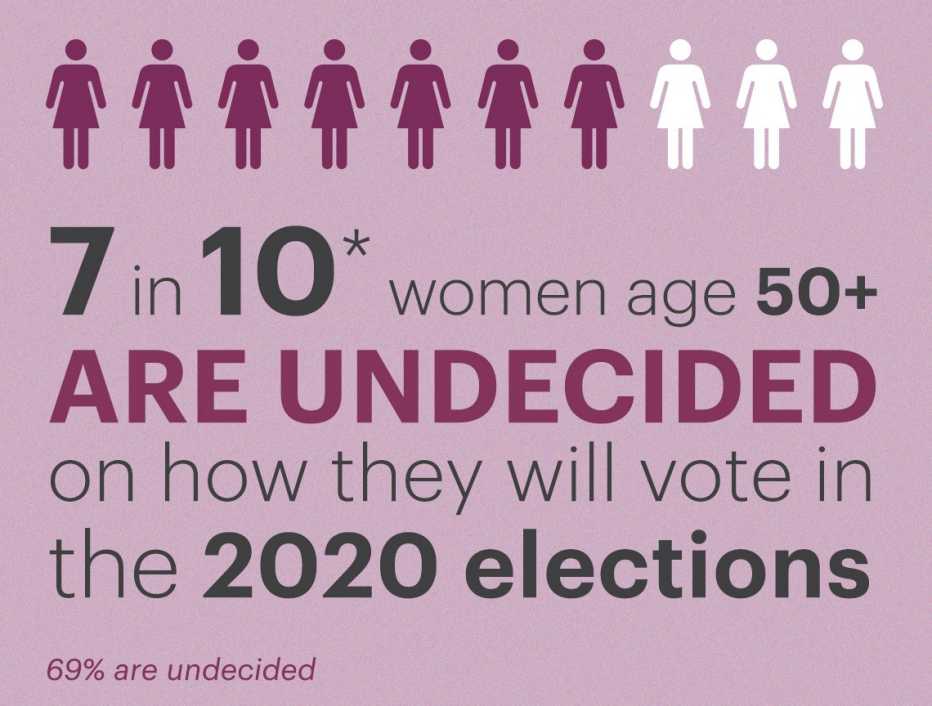AARP Hearing Center


The path to victory for candidates in the 2020 elections will run through women age 50 and older, according to a new AARP poll that finds 95 percent of older women plan to cast a ballot in November. The survey shows that these voters are engaged, motivated and plan to closely scrutinize the positions of those seeking their support on such pivotal issues as health care and the economy.
“We think this poll is important because it shows women are going to be a decisive voice in the 2020 election,” says Nancy LeaMond, AARP executive vice president and chief advocacy and engagement officer. “This tells us that the candidates better be focused on what older women care about in this election.” And the data clearly shows, LeaMond adds, that “we’ve moved to an era in this election where the old ‘It’s the economy, stupid’ axiom has given way to: ‘It’s health care, stupid.’”
The Harris Poll conducted the survey for AARP. It’s the first in AARP’s “She’s the Difference” series that will continue through the 2020 election season.
This research proves that “women are coming out,” says Tawny Saez, senior strategist at Harris, who says the response that 95 percent of women age 50 and over plan to vote “is one of the highest I’ve ever seen. Women 50-plus have been an overlooked group you cannot overlook any longer.” According to April, 2019 U.S. Census data, women over the age of 50 comprise 28 percent of all registered voters.
Among the 95 percent of women voters who say they are likely to vote, 87 percent say they are very likely. Only 1 percent say they do not plan to vote. This obvious interest in the 2020 election tracks with other recent polls and the analyses of election experts who are predicting that the 2020 turnout will be one of the highest in American history.
The poll was conducted online from Nov. 8 to Nov. 25 among 3,151 registered voters age 50 and over, including 1,924 women. Here is a look at some of the other key findings of this survey.
1. Women age 50+ are mostly undecided


“The fact that so many women are still undecided goes to show how important this election is for them,” says Saez. The current candidates have not convinced women age 50 and older that they’ll make sufficient progress on the issues they care about, she says, especially health care and the economy. “There’s almost a fear of electing another leader that is not going to move the needle on issues that will affect their daily lives.”
Of women 50+ who say they’re likely to vote in November, 22 percent say they’ll probably make up their minds several months before Election Day and 11 percent expect to decide on Election Day. Those findings were virtually the same among African American, Hispanic and suburban women. Slightly more men in that age group — 37 percent compared to 31 percent of women — say they’ve already made up their mind about who to support.







































































More on Politics
Providing Facts, Resources to Empower Voters
AARP is going all out to make sure our members know where the candidates stand on important issuesGovernment and Election News for Older Americans
AARP is holding politicians accountable on issues like Medicare, Social Security, prescription drugs and long-term care.Most 50-Plus Women Voters Still Undecided in Midterm Elections
Inflation and Social Security concern many in new AARP poll